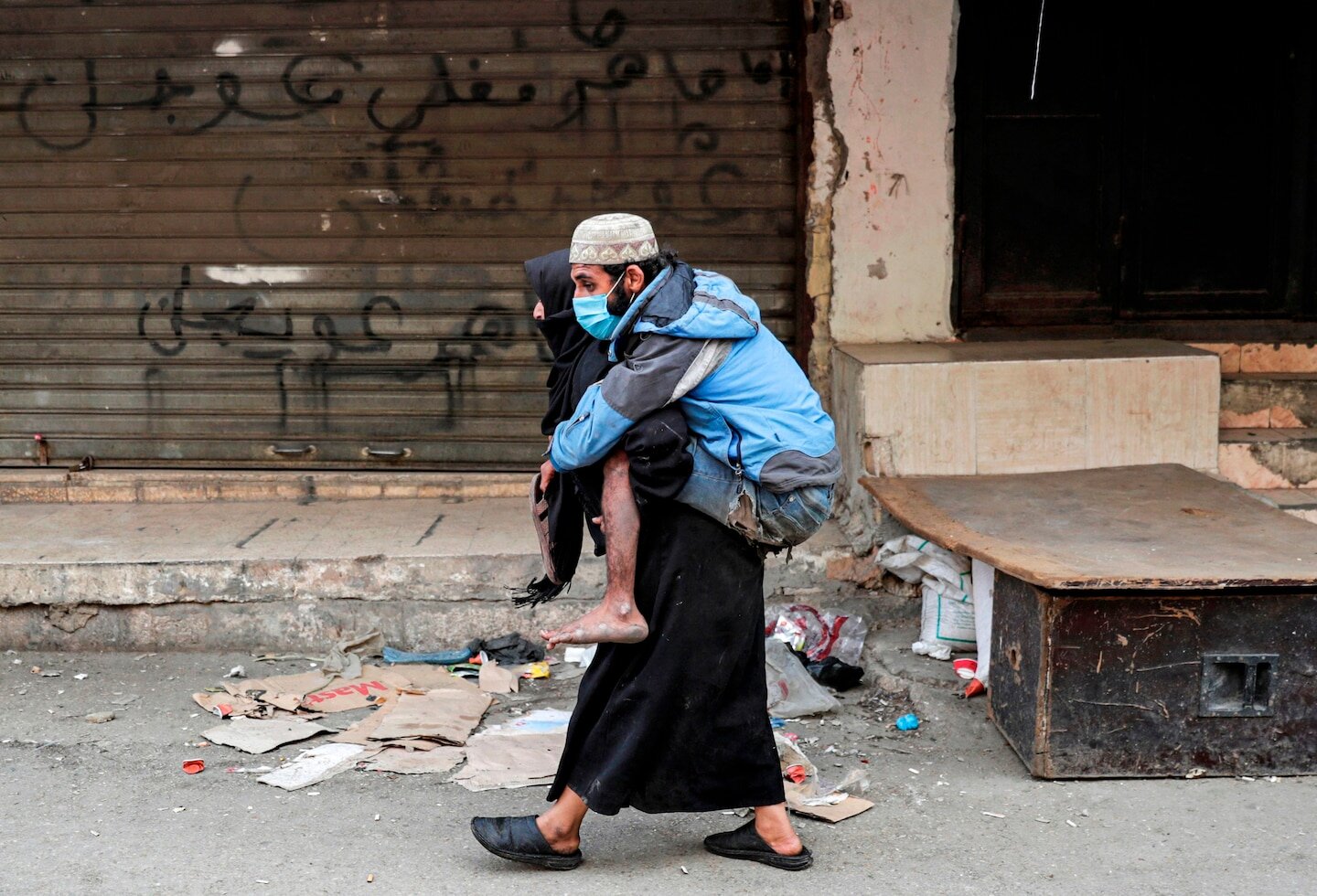The Value of a Breath
Sabra, Beirut, Lebanon. March 22, 2020. (Anwar Amro/AFP/Getty Images)
I had a flashback as I walked through Trader Joe’s the other day. I scanned over the empty frozen food section, seriously the only thing left was frozen broccoli pizza crusts, obviously left for a reason, and the barren shelves throughout the store.
Twelve years ago, I was in Monoprix, a supermarket in Beirut. We were preparing to be locked in our apartments over a war – a street fight between militias battling over who exactly controlled Beirut. The shelves were bare – no bread, eggs, meat, or cheese. But luckily there was still dried pasta and Lebanese wine. I was basically set.
Preparing for a war and a pandemic is virtually the same. Maybe because a pandemic really is a war. I’ve been struck by the similarities; both have stricken me with fear and made me grateful for life.
My major concern since COVID-19 started to spread and then became a pandemic was marginalized communities. They will suffer greatly, and they will be the last to receive the help they need.
While my income has dropped significantly, I am still able to work from home. I can self-quarantine. I can buy two weeks of groceries at a time to shelter in place. I have a computer and a bit of savings. I also have health insurance for the time being. All of this could change tomorrow. But I keep reminding myself that I am okay today. Today, I am okay.
For Palestinian refugees in Lebanon, the average income for a worker is $356 a month.[1] This is 20% less than the monthly income of a Lebanese worker. Now, this is not going to be the kind of work you can do from home - mostly menial and mostly paid under the table. If you don’t leave the house, you don’t work, you don’t earn money. You do not have the privilege of stocking up on food for your family.
95% of Palestinian refugees in Lebanon do not have health insurance benefits.[2] It can be argued that Palestinian refugees cannot even get basic healthcare to treat their chronic health conditions. I’ve seen it over and over again, UNRWA clinics handing out expired medications and unable to treat the simplest of health problems. I have thought about this in great depth for the past 16 years. Because I have citizenship and insurance, I have my illnesses treated.
Why is my breath more valuable than theirs? What exactly is the difference between my breath and yours?
Many families live in one room structures in the camps. Shatila Camp in central Beirut is about the area of one kilometer and has close to 30,000 people living in it – Palestinian refugees, Syrian refugees, Palestinian refugees from Syria, Lebanese, and a host of other nationalities.[3]
Not ideal for a pandemic. Or it is ideal for a contagious virus like COVID-19 to spread like wild fire among a poor, forgotten people group without basic rights.
Some Lebanese politicians have called for refugee camps in Lebanon to be sealed off – no one gets in or out. Be alarmed when you hear this. It means marginalized groups are being scapegoated for this crisis. They are the dirty ones, they are the ones spreading this, they are the ones that will take your resources, they are the ones that should go without.
That is basically what it boils down to – they are the ones not valuable enough to receive care.
They can be forgotten.
I know this is an overwhelming time for us all and we all are scared and we all face the same virus. I want to challenge you though. By focusing on meeting the needs of others, it has reduced my own stress and anxiety. By keeping the focus off myself, I am able to be more present and more grounded.
I had someone ask me a question a few weeks ago before all of this hit the fan. Let me paraphrase it for you.
“Why should I even learn about Palestinian refugees? I have my own problems, I don’t have money, so why even know about this people group or their problems since I can’t do anything about it?”
Let me call bullshit on that question. In the end, each of us needs to ask that question to ourselves and be able to live with the consequences of it. I am not particularly gifted or smart and I definitely don’t have money. But, nothing, let me repeat, nothing, has given my life more meaning than to give it away to others. To use whatever rights and talents that I do have to make sure others in this world have the same.
That is especially true in a pandemic.
Don’t shut your ears or eyes to the suffering of others because we are in this together.
Don’t forget that.
Together.
[1] https://www.ilo.org/wcmsp5/groups/public/---arabstates/---ro-beirut/documents/publication/wcms_236500.pdf
[2] https://www.ilo.org/wcmsp5/groups/public/---arabstates/---ro-beirut/documents/publication/wcms_236500.pdf
[3] https://worldofcamps.org/camp/shatila-camp/

